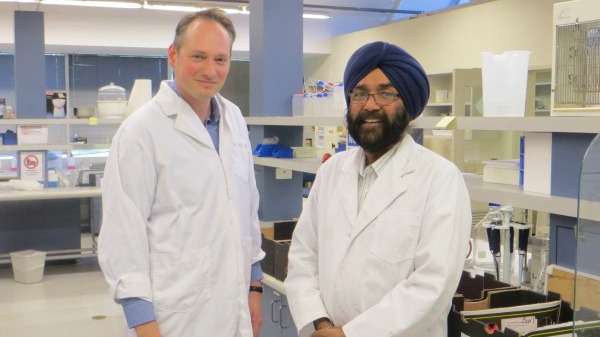Discovery set to make food and flowers last longer

A pair of Curtin University researchers has come up with a way of extending the shelf-life of vegetables, fruit and flowers by slowing down the process that leads to them spoiling.
The process has the potential to help reduce the billions of tonnes of food that are wasted worldwide each year.
In effect, it also represents a new weapon in the fight to help feed the world's growing population, estimated to reach more than nine billion people by 2050.
Making food last longer and reducing waste will help feed more people, compared to alternative strategies of having to increase food production.
The process was developed by horticultural researcher Professor Zora Singh and organic chemist Dr Alan Payne.
Food and flowers ripen, and then over ripen and spoil, due to their natural production of ethylene gas.
The researchers have come up with compounds they've dubbed 'ethylene antagonists' (in chemistry an antagonist is a substance which inhibits another process).
The result is that fruit and vegetables stay fresher for longer, and cut flowers take longer to drop their petals.
"The way these compounds work is that they don't reduce the production of ethylene, they prevent the fruits, vegetables and flowers from perceiving ethylene," says Dr Payne.
"Every fruit has a receptor that ethylene binds to."
"What we're doing is we're masking those receptors."
Prof Singh up to 44 per cent of fresh food and produce spoils before it reaches consumers, and that half of this is due to ethylene production.
Professor Singh has been working in the food research area for more than two decades and several years ago approached Dr Payne.
"I started to think how could I make a compound that's easier to make, easier to use and I came up with these compounds that Zora was happy to test on his fruits and flowers," says Dr Payne.
The pair says their ethylene blockers are more versatile than current methods and can be used pre- or post-harvest as a solid or liquid by spraying, dipping, waxing or fumigation.
"The beauty of these compounds is that we can apply them in the production phase, when the food is growing," Professor Singh says.
"We tried to make them more user friendly, because it was already being used by the industry."
Their work won a recent Curtin Commercial Innovation Award.
The researchers and Curtin University have filed a patent and are seeking potential partners to commercialise the technology.
Provided by Science Network WA
This article first appeared on ScienceNetwork Western Australia a science news website based at Scitech.


















